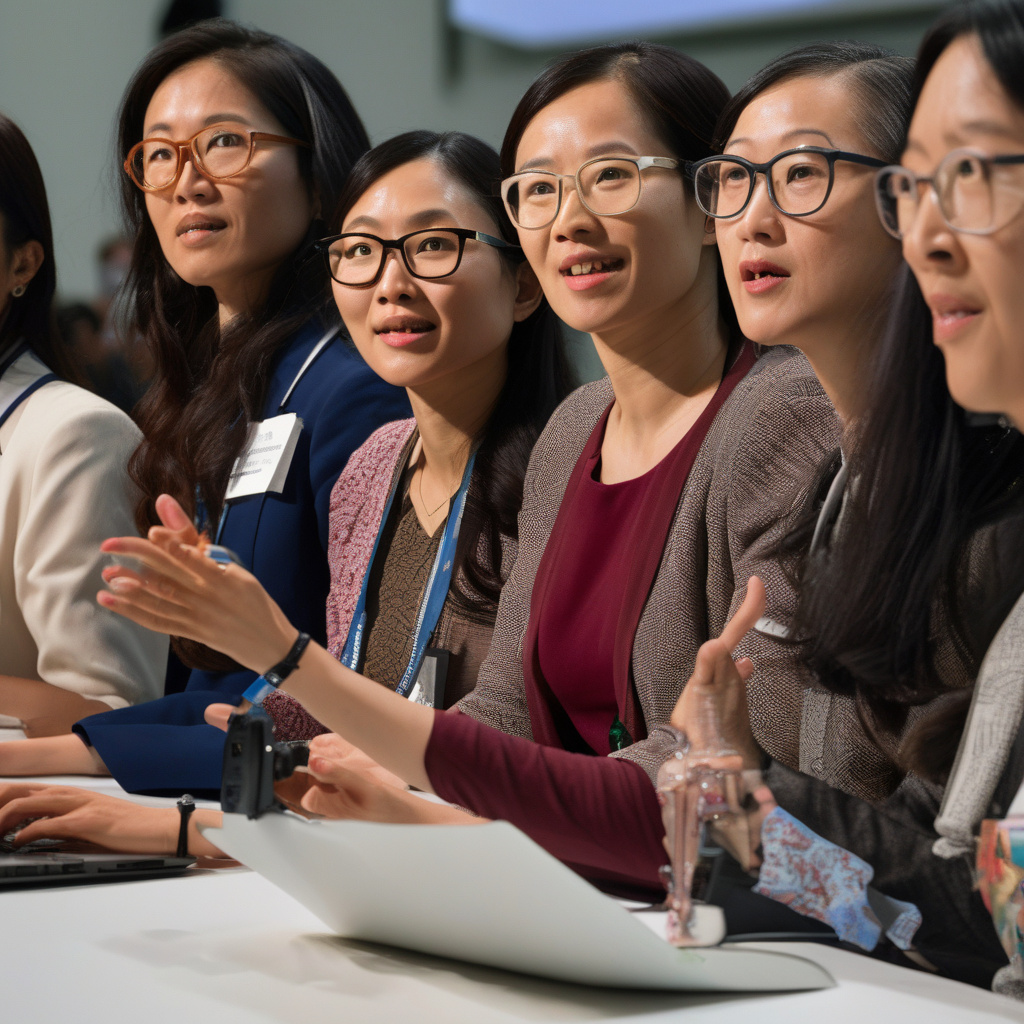Women Researchers Showcase Accessibility Breakthroughs at WSIS
At a pivotal global forum, groundbreaking projects led by women are reshaping how technology can break down barriers in classrooms and newsrooms alike, offering a glimpse into a more inclusive digital future.
The recent World Summit on the Information Society (WSIS) served as a platform for women researchers to showcase their innovative projects that are revolutionizing accessibility in the digital landscape. These projects are not only pushing boundaries but also highlighting the crucial role that women play in driving technological advancements that benefit society as a whole.
One such standout project presented at WSIS is the development of AI-powered assistive technologies that aim to make classrooms more inclusive for students with disabilities. Led by a team of female researchers, this project leverages the power of artificial intelligence to provide real-time support and accommodations for students with diverse learning needs. By harnessing the capabilities of AI, these researchers are paving the way for a more accessible and equitable education system.
In addition to transforming classrooms, women researchers are also making significant strides in improving accessibility in newsrooms. With the rise of digital journalism, it has become increasingly important to ensure that news content is accessible to all individuals, including those with disabilities. Through innovative projects focused on enhancing the usability of online news platforms, female researchers are leading the charge in making news more inclusive and accessible.
The impact of these accessibility breakthroughs goes beyond just technology. By fostering inclusivity in classrooms and newsrooms, these projects are contributing to a more diverse and equitable society. When technology is designed with accessibility in mind, it has the power to empower individuals, break down barriers, and create opportunities for all members of society to participate fully in the digital world.
Furthermore, the success of these projects underscores the importance of diversity in the field of technology. By championing women researchers and their groundbreaking work, WSIS is not only recognizing their contributions but also inspiring the next generation of female innovators to pursue careers in STEM fields. The visibility of these projects serves as a powerful reminder of the valuable perspectives and insights that women bring to the table in driving technological innovation forward.
As we look towards the future, it is clear that the work of women researchers in the realm of accessibility is instrumental in shaping a more inclusive digital landscape. By highlighting their achievements and amplifying their voices, we can move closer towards a world where technology serves as a tool for empowerment and accessibility for all.
In conclusion, the projects showcased by women researchers at WSIS are not only pushing the boundaries of technological innovation but also paving the way for a more inclusive and accessible digital future. By harnessing the power of technology to break down barriers, these researchers are driving positive change and inspiring others to join them in creating a more equitable society.
accessibility, breakthroughs, women researchers, WSIS, digital future
